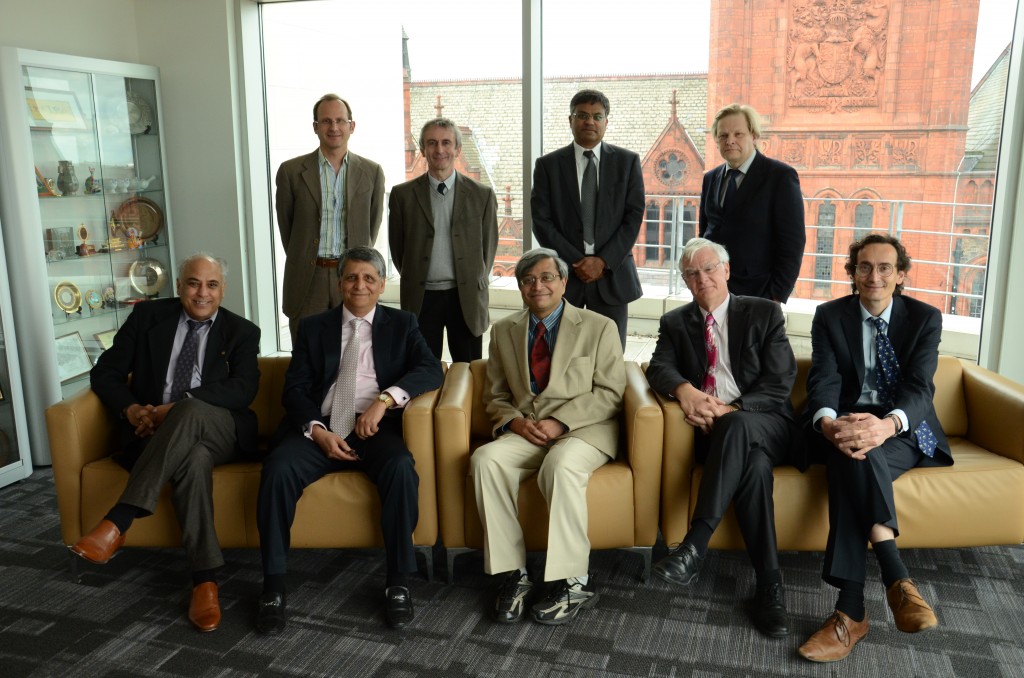
Professor Rangarajan (c) met with Directors of Institutes within the Faculty of Health and Life Sciences
The University is planning to develop a post-doctoral exchange programme with the Indian Institute of Science (IISc) in Bangalore.
Professor Samar Hasnain, International Lead for the University’s Faculty of Health and Life Sciences, welcomed Professor G Rangarajan, chair of IISc’s International Relations Cell, to discuss the possibilities for both institutions.
Prof Hasnain said: “IISc is by far and away the best institute in India. Its co-location with the National Institute of Mental Health and Neuro Sciences (NIMHANS) in Bangalore makes this city a highly attractive target for international partnerships. They have just created the largest Biosafety level-3 facility in India and Boeing has recently established a major aerospace laboratory there. The Government of India has gifted 1500 acres of land for the development of its second campus and ambitious projects, such as an advanced synchrotron light source and a medical school are being planned.”
Strong history
Established in 1909, IISc occupies the same 400 acre site gifted by the Maharaja of Mysore in March 1907. Its first director was Morris W Travers and its first Indian director was Nobel Prize winner, Sir CV Ramen, who oversaw the birth of its Physics Department in 1933. It is largely a degree awarding postgraduate institute and currently boasts around 2,000 PhD students. Despite its thriving PhD programme, it retains very few Post Doctoral Research Assistants (PDRA) as the bulk of its PhD students aim to go abroad on completion of their doctorate.
Prof Hasnain said: “This offers us an opportunity to set up an exchange programme involving their Faculty and our Post Doctorate and Research fellows. Once this is established, the exchange of PhDs can also be set up.”
International approach
IISc has links to a number of UK higher education institutions, including cooperation agreements with the Universities of Birmingham, Durham and Edinburgh, and a collaboration agreement with University of Manchester. It also has a strong international presence, with links to University of Tokyo, Japan; University of Paris, France; Massachusetts Institute of Technology and the University of Maryland in the USA, among others.
Prof Hasnain added: “We plan to hold a follow up visit to India in September. We hope this will result in greater grass-roots enthusiasm at both ends, providing the necessary energy for this to become a sustainable productive engagement, in areas such as Materials, Infection, Structural Biology and Aerospace technology.”